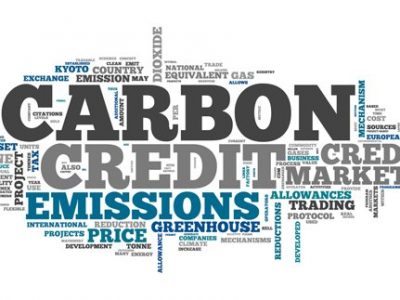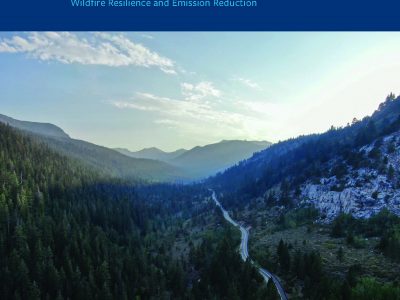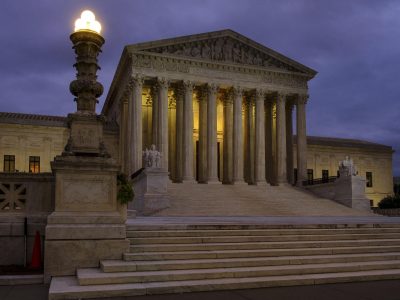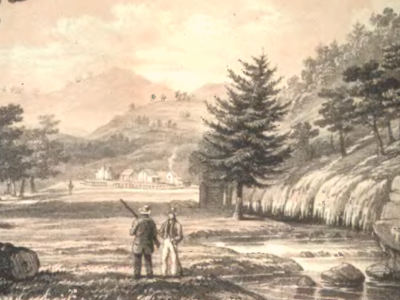California Releases Draft Plan to Reach Carbon Neutrality by 2045
California's Draft 2022 Scoping Plan is an ambitious, affordable, and actionable plan for addressing climate change
California’s lead climate and air quality agency published a comprehensive draft plan yesterday for how the state could reach its carbon neutrality goals by no later than 2045. The California Air Resources Board's (CARB) Draft 2022 Scoping Plan Update (Draft Plan) assesses both California’s progress toward meeting its 2030 greenhouse gas (GHG) emissions reduction target (40% reduction from the 1990 level) established by Senate Bill 32 (Chapter 249, Statutes of 2016),...
CONTINUE READINGGoverning Emissions Trading in California and China
Two new policy reports from an international research collaboration consider the design and implementation of emissions trading systems in China and California
Carbon markets are at a crossroads. As of 2021, 30 emissions trading systems were in force globally, covering 16-17% of global greenhouse gas (GHG) emissions. Last year, climate negotiators in Glasgow finalized the Paris Agreement rulebook for international cooperation through carbon markets, clearing the way for the expansion of emissions trading and carbon pricing worldwide. But the next phase of market-based programs for reducing GHG emissions raises significant qu...
CONTINUE READINGBadly Drafted and Constitutionally Suspect
New laws blacklist “discrimination” against fossil fuel companies in states that normally could care less about discrimination of any kind.
Texas and a number of other states have passed laws banning what they call “boycotts of fossil fuel companies." More precisely, they ban state investment or contracting with firms that "boycott" fossil fuel companies. Besides being fundamentally misguided and difficult to implement, these blacklist laws are poorly drafted and quite likely unconstitutional. The “fundamentally misguided” part of the previous sentence should be obvious to any reader of this websit...
CONTINUE READINGMexico y el Cambio Climático
There is much to celebrate today. But Mexican climate policy may not be one of them.
This being Cinco de Mayo, it seems like an appropriate time for a look at Mexico’s climate challenges. Mexico's carbon emissions are about the same as those of Texas, the highest-emitting US state. Per capita emissions, however, are far lower, given Mexico’s much larger population. Mexico is also highly vulnerable to climate change. What’s the state of climate policy in Mexico? The climate issue has to be placed in the broader context of Mexico's situation. ...
CONTINUE READINGTurning Wildfire Treatment Debris Into Marketable Wood Products
New report & May 9th webinar offer solutions to reduce emissions and improve wildfire resilience
Berkeley Law's Center for Law, Energy and the Environment (CLEE) and UCLA Law's Emmett Institute on Climate Change & the Environment are releasing today a new policy report: Branching Out: Waste Biomass Policies To Promote Wildfire Resilience and Emission Reduction. The report offers solutions to develop a sustainable market for the residual waste material generated by wildfire treatments on forested and other high fire risk lands. In response to California’s deva...
CONTINUE READINGClarifying the Congressional Review Act
The Ninth Circuit rules on the preclusive effect of a CRA disapproval in a wilderness protection case.
Soon after Trump took office, Republicans used the Congressional Review Act (CRA) to overturn sixteen Obama-era regulations. If they win control of the government in 2024, they’ll undoubtedly do the same thing to Biden regulations. It behooves us, then, to understand the effect of these legislative interventions. A Ninth Circuit ruling last week in a case involving bear baiting, Safari Club v. Haaland sheds new light on this murky subject. The CRA provides a fast-...
CONTINUE READINGTaking the Court’s Temperature on Global Warming
A case on the shadow docket may shed light on the Court’s direction.
Court watchers and environmentalists are waiting with bated breath for the Supreme Court to rule on West Virginia v. EPA, the Court’s most important climate change case in a generation. The issue in that case is what, if anything, EPA can do to regulate carbon emissions from power plants and factories. Yesterday, conservative states asked the Court to intervene in another climate change case. How the Court responds could give us hints into just how far the activist con...
CONTINUE READINGNew Paper Addresses California Air District Authority to End NOx Pollution from Household Appliances
Most household appliances, like furnaces and water heaters, are powered by fossil fuels and emit nitrogen oxides (NOx)—toxic and highly reactive gases that endanger human health and the environment. To address this problem, air districts have adopted policies to reduce NOx pollution from appliances, and others across California are considering similar proposals. In a new policy brief released today, my colleagues Cara Horowitz, Julia Stein, and I argue that air distr...
CONTINUE READINGInsurance Regulators Commit to TCFD-Aligned Risk Disclosure Survey
Updated survey signals greater industry focus on climate risks
Two weeks ago the National Association of Insurance Commissioners (NAIC) took a significant step in the assessment and disclosure of climate-related financial risk by updating its insurer climate risk survey to reflect the recommended disclosures of Task Force on Climate-Related Financial Disclosures (TCFD). The TCFD recommendations are widely recognized as a leading international standard for climate risk disclosure, and the NAIC’s adoption will both increase the qual...
CONTINUE READINGBefore Yellowstone: The Arkansas Origin of National Parks
In a forgotten incident, Congress set aside Hot Springs in 190 years ago.
The origins of the national park system is usually traced back Lincoln’s 1864 signature of the Yosemite Grant Act. But Congress had actually had the idea of protecting extraordinary places over thirty years earlier, in Arkansas of all places. Hot Springs isn’t high on the list of American places to see, which may be one reason this episode had been forgotten. But it deserves to be remembered as a milestone in federal policy. The springs are located in the Ouachi...
CONTINUE READING










